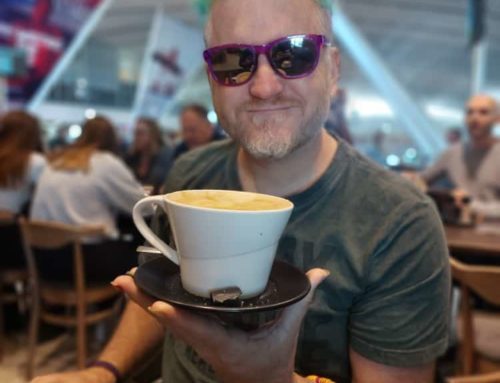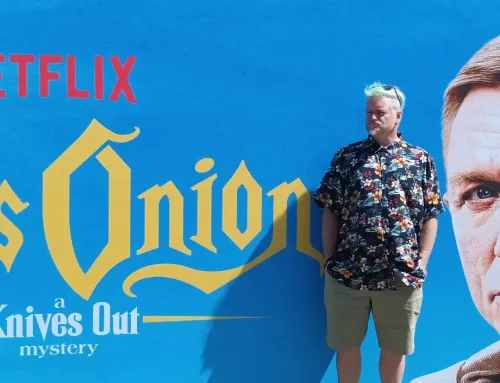Okay, so i don’t have a heart tattoo. Or any tattoo. And time is running out for me to get my first one before i leave Americaland [have the money, don’t have the right design!]
But i just started reading the book, ‘Tattoos on the Heart: The Power of Boundless Compassion’ by Father Gregory Boyle [who i heard speak at CCDA last year in a deeply moving session] and already it is breaking me up into tiny little pieces… in a good way.
And being hardly into the book at all, i can tell you that you should just go online and order as copy right now because it is going to be that good. And it is a simple to read book containing many stories and some thoughts and reflections.
As well as sharing some meditations and poetry from others along the way:
‘Find the real world, give it endlessly away, grow rich flinging gold to all who ask. Live at the empty heart of paradox. I’ll dance with you there – cheek to cheek.’
[the poet Rumi, quoted by Father Gregory Boyle in ‘Tattoos on the heart.’]
And then a bunch of stories, but this one smacked me across the face, forgetting to remove its medieval styled iron gauntlet in the process:
From the Introduction: Dolores Mission and Homeboy Industries
The original bakery [set up using former gang members as employees] was hugely famous from its first week. News crews would visit us almost daily. Articles were written with photos of enemies working alongside one another. Tour groups came from all over the world. Busloads of Japanese tourists dropped by. Even Prince Charles’s’ business advisors swooped down on us. “Pip Pip Cheerio” meets the Homies.
Our foreman at the time was a man named Luis, in his mid-twenties, who arguably had been among the biggest, savviest drug dealers our community had ever knows. We knew each other for more than a decade, and any offer of a job was always, graciously, but surely, declined. Luis was as smart as they come ad quick-witted.
He used to say, “When we were kids, we would play Kick the Can but so did the cops. You know, they’d play Kick the Mexi-Can or Kick the PuertoRi-Can.”
He never got caught. Too smart. If the cops rolled by and he was standing with me, he’d mumble, “Beam me up, Scottie.”
But when his daughter, Tiffany, was born, things changed. He wanted to work at the bakery, and his natural leadership abilities soon moved him up to foreman. Not only did he work with former rivals, he also supervised them, which is a great deal more difficult.
One day we received an odd request for a tour from farmers from the central valley of California. They want to see the bakery. It’s part of Luis’s job to greet the busloads and the film crews. He hates this part of his job, and his whining could make your teeth ache.
“Do I gotta?”
The day the farmers arrive, he and I are waiting for the bus to pull up, and I’m swinging at his whiny complaints like a bunch of pesky gnats.
Finally, the bus drives into the awkward bakery parking lot and I wave and direct it to its reserved spot. It’s one of those ultramodern buses, sleek and slick, equipped with a microphone at the front of the bus for the tour guide.
Luis pretends he’s the tour guide. “Welcome to Homeboy Bakery,” his voice nasally drones with tour-guide disinterest. “Observe gang members in their natural habitat.”
He is holding his fist up to his mouth, for greater amplification. “Please keep your hands in the bus at all times. Do not attempt to feed the homies. They are not yet tame.”
“Cállate, cabrón,” I say through the part of my mouth not smiling, welcoming our visitors from the farmland as they get off the bus.
Later in the day, I visit the bakery several blocks from my office. Seeing Luis triggers the memory of his earlier tour.
“Oye,” I ask him. “How’d the tour go?”
“Damn, G,” he shakes his head. “What’s up with white people anyway?”
I was actually curious as to what was up with us.
“I don’t know, what is up with us?”
“I mean, damn,” he says, “They always be using the word GREAT.”
“We do?”
“Oh, hell yeah. Watcha. This buncha gabachos stroll in here and see the place, and it’s all firme and clean and machines workin’ proper, and they say, “This place is GREAT.” And then they see the homies, tú sabes, enemies working together all firme, and they say, “You fellas are GREAT.” Then they taste our bread and they go, “This bread… it’s GREAT.” I mean, damn, G, why white people always be usin’ the word ‘GREAT’?”
I tell him I don’t know. But, trust me, every opportunity I could find after that, I tell him how ‘GREAT’ he is, just to mess with him a little.
Some four months later, it is nearly closing time, and I arrive at the bakery in the evening. Luis sees me in the parking lot from inside the building and rushes outside. He’s excited, and yet “enthusiasm” is not ever the card with which Luis leads. He’s too cool for that. He barely lets me get out of my car.
“Hey, G,” he says, thrilled to see me, “You not gonna BELIEVE what happened to me yesterday after my shift.”
He proceeds to tell me that, after work, he goes to pick up his four-year-old daughter, Tiffany, at the babysitter’s. He puts her in the car, and they drive to their tiny apartment, where, fr the first time, Luis is paying rent with honestly earned, clean money. He unlocks the front door, and Tiffany scurries in, down the hallway, and lands in their modest sala. She plants her feet in the living room and extends her arms and takes in the whole room with her eyes. She then declares, with an untethered smile, “This… is GREAT.”
He tells me that he lowers himself to her eye level, placing his hands on his knees for support.
“What’s great, mija?”
Tiffany clutches her heart and gushes, “MY HOOOME!”
Luis seems to be unable to speak at exactly this moment. Our eyes find each other, and our souls well up, along with our eyes. We can’t stop staring at each other, and tears make their way south on our faces. After what seems like longer than I’m sure it was, I break the silence.
I point at him. “You…did… this. You’ve never had a home in your life – now you have one. You did this. You were the biggest drug dealer in this town, and you stopped and baked bread instead. You did this. You’ve never had a father in your life – and now you are one… and I hate to tell you this… but… you’re great.”
And I hate to have to tell YOU this, but the first time I retrieved this story from my memory bank was to tell it at Luis’s funeral. He wasn’t doing anything wrong on the day he was killed. He was loading the trunk of his car, in the projects, readying himself for a camping trip with friends. Two gang members, with their faces covered, entered their “enemy’s” territory, looking for “fools slippin’.” They saw Luis and must have thought to themselves, “He’ll do.” They walked up to him and executed him.
I told the “Great” story at Luis’s funeral largely because of the questions I had repeatedly been asked by his friends and homies during the week that spanned his death and his burial.
“What’s the point?,” they’d ask. “of doing good… if this happens to ya?”
It was a good question, worthy of a response. I told the packed church that Luis was a human being who came to know the truth about himself and liked what he found there.
Julian of Norwich, a fourteenth-century female English mystic, saw the life struggle as coming to discover that we are “clothed in God’s goodness.”
This became Luis’s life’s work. He embraced this goodness – his greatness – and nothing was the same again. And, really, what is death compared to knowing that? No bullet can pierce it.
WITH THAT MOON LANGUAGE
Admit something:
Everyone you see, you say to them,
“Love me.”
Of course you do not do this out loud;
Otherwise,
Someone would call the cops.
Still though, think about this,
This great pull in us to connect.
Why not become the one
Who lives with a full moon in each eye
That is always saying
With that sweet moon
Language
What every other eye in this world
Is dying to
Hear.
[Hafez]
[To read another extract, ‘The Smell of Feet’, click here]
[To read the post i wrote after listening to Father Gregory Boyle speak at CCDA, click here]




![The Road to the Catan World Champs in Malta 2022! [Part II]](https://brettfish.co.za/wp-content/uploads/2022/11/IMG_9944-scaled-e1669831201283-500x383.jpg)
![The Road to the Catan World Champs in Malta 2022! [Part I]](https://brettfish.co.za/wp-content/uploads/2022/11/catanchampionships-500x383.jpg)
[…] [To read the first extract i shared from 'Tattoos on the Heart', click here] […]
[…] [To read 'My New Heart Tattoo' click here] […]
[…] [To read the first passage i shared, 'My New Heart Tattoo' click here] […]
[…] [For another inspiring passage from this book, titled My New Heart Tattoo, click here] […]
thanks for sharing the extracts B, I love them … Beautiful
ah good to know someone is reading – loved that book so much!